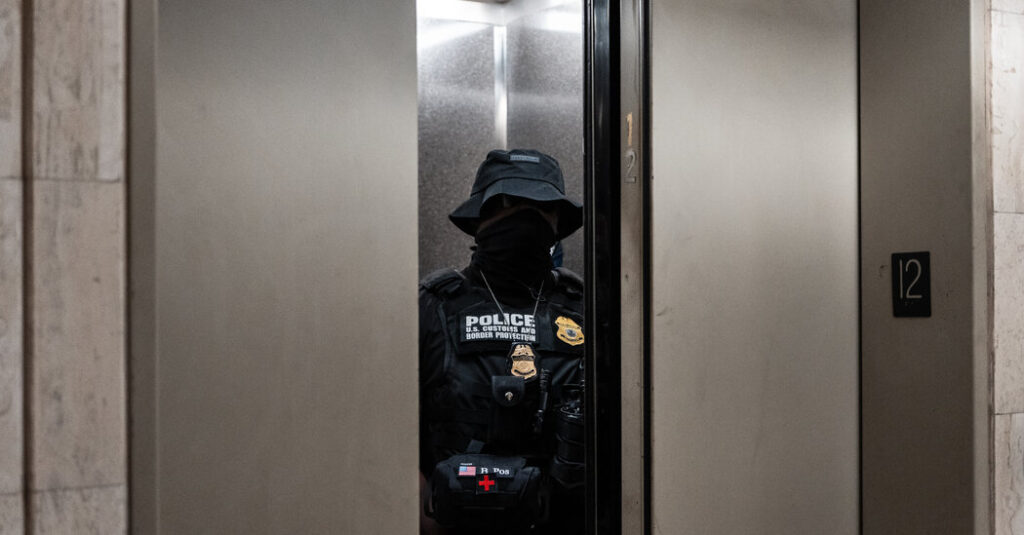A federal judge has dismissed a lawsuit that the Trump administration filed against New York State in hopes of enabling immigration agents to conduct arrests in state and local courthouses.
The judge, Mae A. D’Agostino, ruled late Monday in favor of New York, finding that a 2020 state law and two executive orders that limit civil arrests near local courts and in state facilities were not unconstitutional, as the Department of Justice had argued in June.
The 41-page ruling marked another defeat for President Trump’s efforts to strike down laws passed by cities and states that limit cooperation between localities and the federal government on immigration matters.
In July, a federal judge in Illinois dismissed a lawsuit that had argued that state and local officials there were violating the Constitution by enforcing so-called sanctuary measures. The Justice Department filed a similar lawsuit against New York City’s sanctuary laws in late July that is ongoing.
The ruling on Monday night has no effect on the arrests that federal officers have been conducting in immigration courthouses in New York City, which are federal property. Scores of migrants showing up for routine court hearings have been arrested this year.
New York lawmakers passed the 2020 state law, known as the Protect Our Courts Act, during Mr. Trump’s first term, when Immigration and Customs Enforcement agents began arresting undocumented immigrants at state and local courts. Other states, including California and Washington, have similar policies barring ICE agents from courthouses.
The New York law allows agents to arrest people at or near courthouses only if they have a court order or criminal warrant signed by a judge — provisions that make it much harder for ICE to conduct arrests at the courthouses.
In June, Pam Bondi, the U.S. attorney general, filed a lawsuit in federal court in Albany that argued that the state law shielded criminals while endangering public safety, saying that the state was helping “prevent illegal aliens from apprehension.”
The lawsuit argued that the state law violated the Constitution’s supremacy clause, which says that the Constitution and federal statutes take priority over any conflicting state laws.
But Judge D’Agostino, who was appointed by President Barack Obama in 2011, ruled that the state policies were not pre-empted by federal law and that New York was within its rights in deciding not to help the federal government with immigration enforcement.
She wrote that the state’s measures reflected New York’s “decision to not participate in enforcing civil immigration law — a decision protected by the Tenth Amendment and not preempted” by federal immigration laws.
Letitia James, the New York State attorney general and a Democrat, celebrated the ruling.
“Everyone deserves to seek justice without fear,” Ms. James said in a statement. “This ruling ensures that anyone can use New York’s state courts without being targeted by federal authorities.”
ICE officials have previously argued that arresting people in courthouses is easier and safer for its officers and the public, in part because people who enter courthouses have been screened for weapons.
The Department of Justice did not immediately respond to a request for comment.
Luis Ferré-Sadurní is a Times reporter covering immigration in the New York region.
The post Judge Dismisses Trump’s Challenge of New York Law Barring Court Arrests appeared first on New York Times.




